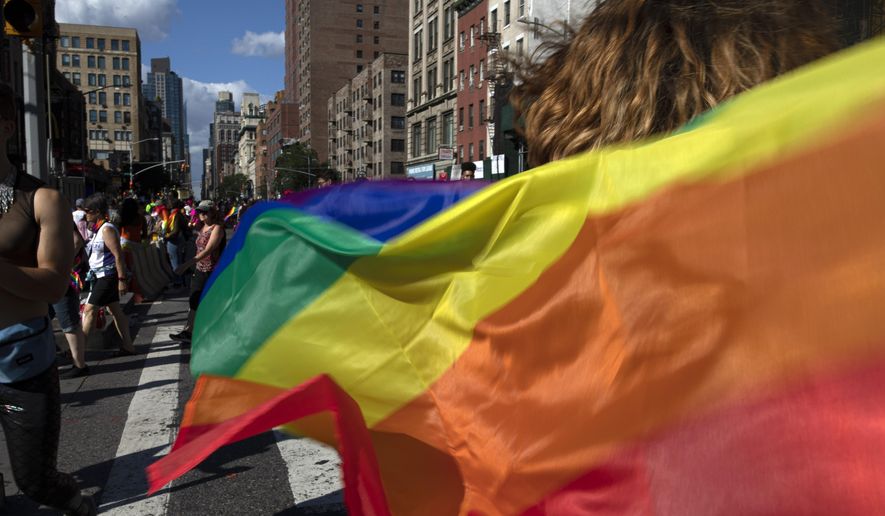A federal judge has ruled in favor of a gay substitute teacher this month in a lawsuit over his being fired from a Catholic school because of his marriage to another man.
U.S. District Judge Max O. Cogburn Jr., an Obama appointee, sided with Lonnie Billard, who sued Charlotte Catholic High School in North Carolina after he was removed from substitute teaching because he chose to marry a man.
According to the federal lawsuit, Mr. Billard argued that the school discriminated against him in violation of the Civil Rights Act and removed him from its substitute teaching list after he announced on social media that he would be marrying his partner.
Charlotte Catholic High School, according to court papers, follows the Roman Catholic church’s teaching on marriage, which is that it’s a union between a man and a woman and “sexual expression belongs to husband and wife alone.”
In the past, Mecklenburg Area Catholic Schools, which is a regional school system responsible for nine schools including Charlotte Catholic High School, had fired teachers over affairs, same-sex relationships and adopting a child with a partner.
Mecklenburg Area Catholic Schools and the Roman Catholic Diocese of Charlotte were also named as defendants
Judge Cogburn reasoned that Mr. Billard had taught secular courses, mostly English, when issuing a summary judgment in favor of the former substitute teacher.
The judge said that although the school is afforded First Amendment protections, courts have recognized that “gay couples cannot be treated as social outcasts or as inferior in dignity and worth.”
“For that reason, the laws and Constitution can, and in some instances must, protect them in the exercise of their civil and employment rights,” the judge wrote.
Officials from Charlotte Catholic High School did not immediately respond to a request for comment about the ruling.
Liz Chandler, director of communications for the Catholic Diocese of Charlotte, said they disagree with the judge’s decision and are considering the next steps.
“The First Amendment, federal law, and recent Supreme Court decisions all recognize the rights of religious organizations to make employment decisions based on religious observance and preference. They do not — and should not — compel religious schools to employ teachers who publicly contradict their teachings,” she said.
“The Catholic schools offered by the Diocese of Charlotte exist to provide high-quality education and transmit the Catholic faith to the next generation. Like all religious schools, Catholic schools are permitted to employ educators who support our Church’s teachings and will not publicly oppose them,” Ms. Chandler added.
Mr. Billard, meanwhile, said he is relieved and feels vindicated.
“I wish I could have remained teaching all this time,” he said, adding that the judge’s “decision validates that I did nothing wrong by being a gay man.”
Irena Como, an attorney with the American Civil Liberties Union of North Carolina, said the judge applied Supreme Court precedent that private religious employers can’t discriminate against employees based on sex.
“The court sent a clear message that Charlotte Catholic violated Title VII’s prohibition on sex discrimination when it fired Mr. Billard for announcing his engagement to his same-sex partner. Religious schools have the right to decide who will perform religious functions or teach religious doctrine, but when they hire employees for secular jobs they must comply with Title VII and cannot discriminate based on sexual orientation,” Ms. Como said.
The case will go to trial to determine what relief, or damages, Mr. Billard should be granted.
Robert Tuttle, a law professor at The George Washington University, said he was not surprised by the judge’s decision.
“But it’s going to add to the conflict over the status of religious school teachers and the scope of the ministerial exception,” Mr. Tuttle said.
The ministerial exception, according to legal doctrine, prohibits applying anti-discrimination laws against religious institutions and their employees.
• Alex Swoyer can be reached at aswoyer@washingtontimes.com.




Please read our comment policy before commenting.